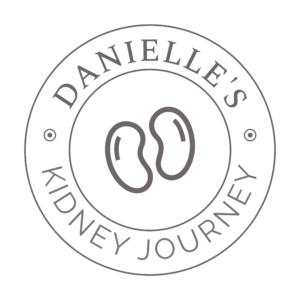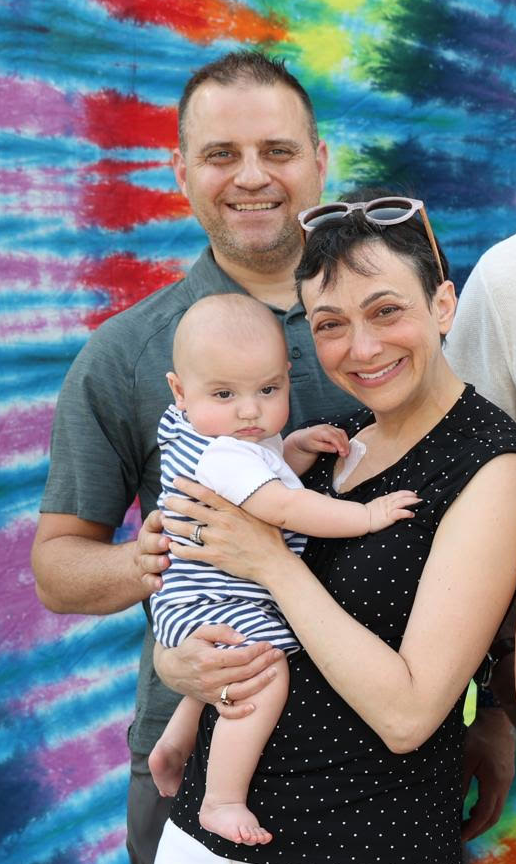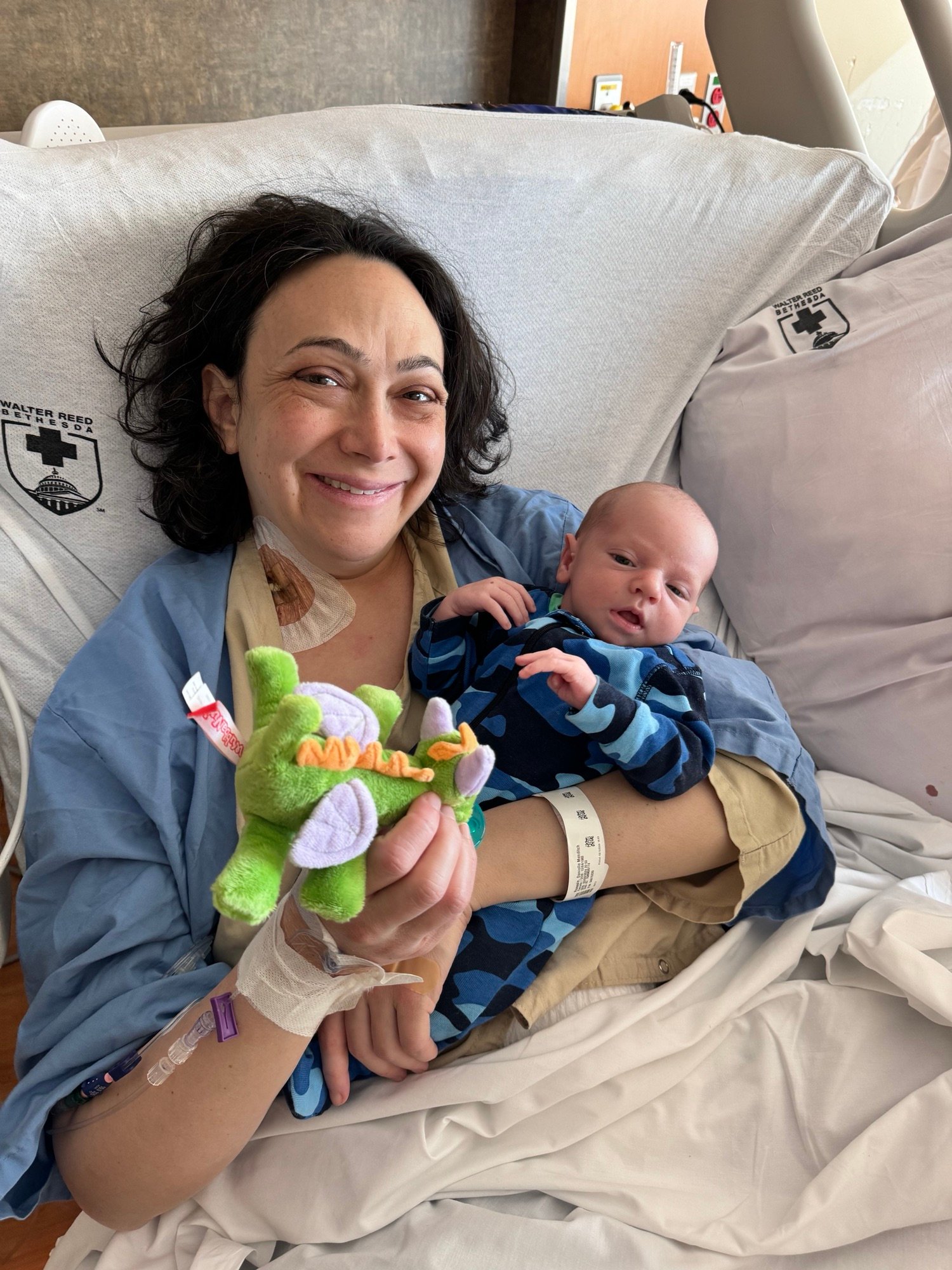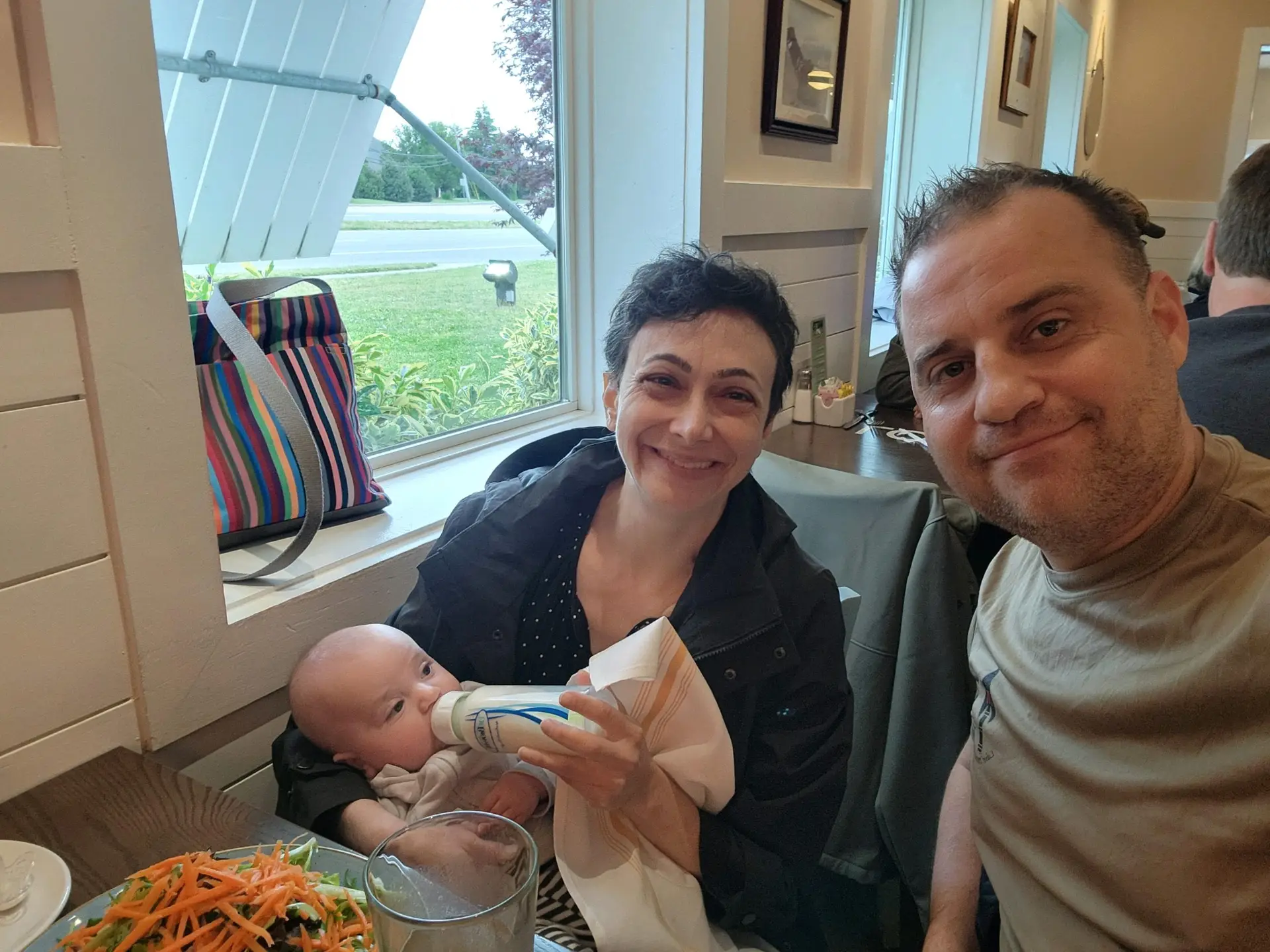Danielle’s Story
Hi, I’m Danielle Roessle, a military spouse and mother of a six-month-old son, living with end-stage kidney disease. On February 4th, 2024, I gave birth to my son, Barney. Unfortunately, complications during childbirth caused severe blood loss, leading to kidney failure.
Since February 8th, I’ve been on dialysis, which has been incredibly challenging. It often leaves me feeling unwell, with symptoms like low blood pressure, dizziness, muscle cramps, and migraines.
I’m doing everything I can to manage my health, including following a strict diet and staying active, but the fatigue is overwhelming. My ability to work is limited to just a few hours a week, and much of my time is spent on transplant-related appointments. My husband, a dedicated military officer, has been supporting our family.
As my son grows, I worry about keeping up with his energy. Before this, I was a full-time career counselor, and I feel a deep calling to return to community work once I’m through this.
I urgently need a kidney donor. While dialysis keeps me alive, a transplant would give me the chance to live a longer, healthier, and more active life—enjoying time with my son and giving back to my community.
I’m working with DOVE, a trusted third-party organization, to help facilitate the kidney donation process. If you’re interested in learning more about how you might help by becoming a donor, please click here.
All medical costs, including surgery and follow-up care, will be covered by my insurance, with additional support available for lost wages and travel expenses. The risk of major complications for kidney donors is minimal. A 20-year Mayo Clinic study of over 3,000 living kidney donors, published in 2022, found that only 2.5% experienced major complications, and all recovered completely.
Thank you for considering this life-saving gift.
Living Donation FAQs
Where can I learn more about being a donor?
Check out the National Kidney Foundation and DOVE Transplant.
What is life like with one kidney?
It is very similar to life with two kidneys—there are usually no long-term medical issues and if there is; you are placed at the top of the kidney transplant list.
How are the medical evaluation and surgery handled?
You will have your own independent medical team and coordinators who will advise and protect you throughout the entire process. To be considered as a potential kidney donor, you will undergo an extensive evaluation and meet with a comprehensive medical team. This includes a dietitian, independent living donor advocate, financial coordinator, nephrologist, nurse coordinator, pharmacist, psychiatrist, social worker, and surgeon. They will conduct blood and urine tests, as well as a CT scan, chest X-ray, EKG, and a mammogram for women.
What are the costs?
All medical costs, including surgery and follow-up care, will be covered by my insurance, and additional support is available for lost wages and travel expenses.
Does FMLA cover kidney donation?
Yes, the Family and Medical Leave Act (FMLA) does cover kidney donation. Under FMLA, eligible employees can take up to 12 weeks of unpaid, job-protected leave for serious health conditions, which includes organ donation. This means that if you are donating a kidney, you can take time off work to recover without fear of losing your job. To learn more, please click here.






